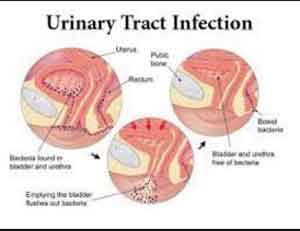- Home
- Editorial
- News
- Practice Guidelines
- Anesthesiology Guidelines
- Cancer Guidelines
- Cardiac Sciences Guidelines
- Critical Care Guidelines
- Dentistry Guidelines
- Dermatology Guidelines
- Diabetes and Endo Guidelines
- Diagnostics Guidelines
- ENT Guidelines
- Featured Practice Guidelines
- Gastroenterology Guidelines
- Geriatrics Guidelines
- Medicine Guidelines
- Nephrology Guidelines
- Neurosciences Guidelines
- Obs and Gynae Guidelines
- Ophthalmology Guidelines
- Orthopaedics Guidelines
- Paediatrics Guidelines
- Psychiatry Guidelines
- Pulmonology Guidelines
- Radiology Guidelines
- Surgery Guidelines
- Urology Guidelines
Plazomicin - new antibiotic for complicated UTI in adults

The U.S. Food and Drug Administration (FDA) has approved ZEMDRI™ (plazomicin) for adults with complicated UTI, including pyelonephritis, caused by certain Enterobacteriaceae in patients who have limited or no alternative treatment options, announced the biopharmaceutical company Achaogen, Inc. ZEMDRI is the only once-daily intravenous infusion aminoglycoside therapy approved for use in cUTI.
Proposed Indications
- Plazomicin is indicated as a single agent in patients 18 years or older for the treatment of cUTI, including pyelonephritis, caused by the following susceptible microorganisms: Escherichia coli (including cases with concurrent bacteremia), Klebsiella pneumoniae, Proteus spp (including P. mirabilis and P. vulgaris), and Enterobacter cloacae.
- Plazomicin is indicated in patients 18 years or older for the treatment of BSIs caused by the following susceptible microorganisms: K. pneumoniae and E. coli.
- ZEMDRI is the only once-daily aminoglycoside therapy approved for use in cUTI.
- ZEMDRI has microbiological activity against pathogens designated by the CDC as urgent and serious public health threats, including carbapenem-resistant (CRE) and extended spectrum beta-lactamase (ESBL)- producing Enterobacteriaceae
Regarding the potential indication for plazomicin for the treatment of bloodstream infection (BSI), the FDA issued a Complete Response Letter (CRL) stating that the CARE study does not provide substantial evidence of the effectiveness of plazomicin for the treatment of BSI.
Plazomicin acts by inhibition of protein synthesis. The unique combination of the mechanism of aminoglycoside uptake, inhibition of bacterial protein synthesis, and the prolonged postantibiotic effect lead to concentration-dependent bacterial cell killing. It possesses in vitro activity against ESBL-producing, aminoglycoside-resistant, and carbapenem-resistant isolates
ZEMDRI got the approval after the EPIC (Evaluating Plazomicin In chronic urinary tract infections) clinical trial, which was the first randomized controlled study of once-daily aminoglycoside therapy for the treatment of cUTI, including pyelonephritis.
Zemdri demonstrated non-inferiority to meropenem in Phase 3 EPIC cUTI trial for the co-primary efficacy endpoints of composite cure in the microbiological modified intent-to-treat at Day 5 and test-of-cure (TOC) visit (Day 17 + 2). Composite cure rates at Day 5 were 88.0% (168/191) for ZEMDRI vs 91.4% (180/197) for meropenem.
Composite cure rates at TOC were 81.7% (156/191) for ZEMDRI vs 70.1% (138/197) for meropenem. Composite cure at the TOC visit in patients with concomitant bacteremia at baseline was achieved in 72.0% (18/25) of patients in the ZEMDRI group and 56.5% (13/23) of patients in the meropenem group.
The most common side effects (≥1% of patients treated with ZEMDRI) were decreased kidney function, diarrhea, hypertension, headache, nausea, vomiting, and hypotension.
Zemdri carries a Boxed Warning describing reports of nephrotoxicity, ototoxicity, and neuromuscular blockade, as well as fetal harm if administered during pregnancy.
cUTI is defined as a UTI occurring in a patient with an underlying complicating factor of the genitourinary tract, such as a structural or functional abnormality. Patients with pyelonephritis, regardless of underlying abnormalities of the urinary tract, are considered a subset of patients with cUTI.

Disclaimer: This site is primarily intended for healthcare professionals. Any content/information on this website does not replace the advice of medical and/or health professionals and should not be construed as medical/diagnostic advice/endorsement or prescription. Use of this site is subject to our terms of use, privacy policy, advertisement policy. © 2020 Minerva Medical Treatment Pvt Ltd